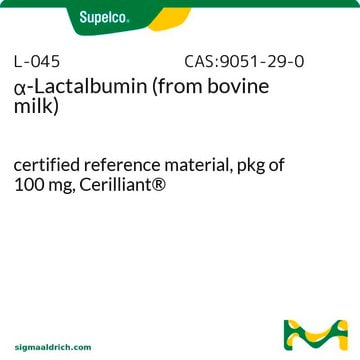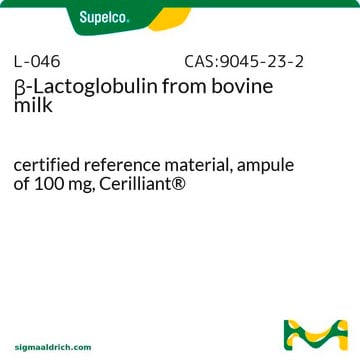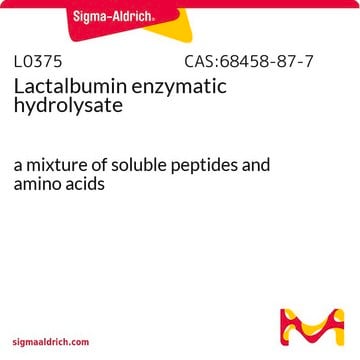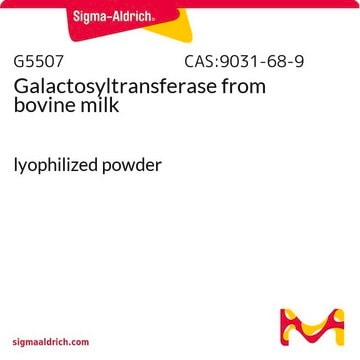L6010
α-Lactalbumin from bovine milk
Type III, calcium depleted, ≥85% (PAGE), lyophilized powder
Synonym(s):
Bos d 4, Lactose synthase B protein, alpha-lactalbumin
About This Item
Recommended Products
biological source
bovine milk
type
Type III
Assay
≥85% (PAGE)
form
lyophilized powder
quality
calcium depleted
mol wt
14,178 Da by calculation
technique(s)
indirect ELISA: suitable
solubility
H2O: soluble 10 mg/mL, clear to slightly hazy, colorless to faintly yellow
cation traces
Ca: ≤0.3 mol/mol
UniProt accession no.
storage temp.
−20°C
Gene Information
cow ... LALBA(281894)
Looking for similar products? Visit Product Comparison Guide
General description
Application
- in indirect enzyme-linked immunosorbent assay (ELISA) and competitive ELISA methods
- in binding of Hsp90 and HSJ1b analysis
- to inhibit the lysozyme CAP-RAST assay
Biochem/physiol Actions
Quality
Storage Class Code
11 - Combustible Solids
WGK
WGK 3
Flash Point(F)
Not applicable
Flash Point(C)
Not applicable
Personal Protective Equipment
Certificates of Analysis (COA)
Search for Certificates of Analysis (COA) by entering the products Lot/Batch Number. Lot and Batch Numbers can be found on a product’s label following the words ‘Lot’ or ‘Batch’.
Already Own This Product?
Find documentation for the products that you have recently purchased in the Document Library.
Customers Also Viewed
Our team of scientists has experience in all areas of research including Life Science, Material Science, Chemical Synthesis, Chromatography, Analytical and many others.
Contact Technical Service
















